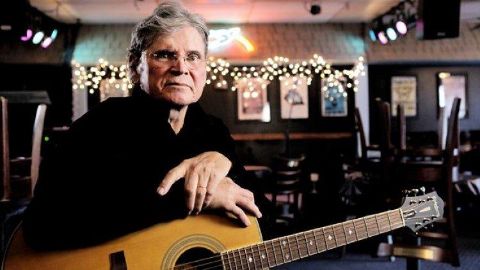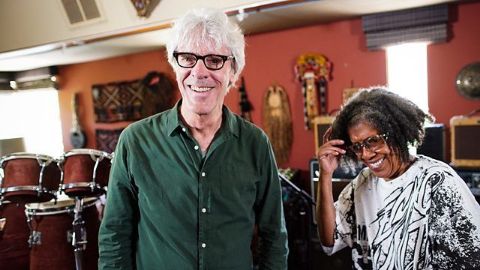Marley • 2012
Bob Marley's musical (and cultural) shadow is so large that the man clearly needed an authoritative documentary portrait--and Marley steps in with all the right stuff to fill the role. Working with official rights to the music and access to Marley's family and friends, Oscar-winning documentarian Kevin Macdonald (One Day in September) creates a thorough account that hits the major points, not stinting on some of the less admirable aspects of Marley's life (including his brood of children fathered with women other than his patient wife, Rita, whose presence indicates just how much she puts Marley's legacy above his personal infidelities). Especially interesting is the sketch of Bob Marley's youth, as a mixed-race--and thus socially ostracized--kid from the village of Nine Mile who began to put together a reggae sound with a group of like-minded musicians in Jamaica in the late '50s and early '60s. That period comes to life, and the account of Marley's ascent, while familiar from such sagas, has its share of offbeat incidents. His death, at age 36 in 1981, does not dominate the movie, but Macdonald does a good job of getting that story laid out. In the meantime, the music and the concert footage are more than enough to justify the movie's existence, and Macdonald makes time to include thoughts about politics, ganja smoking, and Rastafarianism, too. If it's not the final word on Marley, it's an excellent start.
Make a donation
Buy a brother a hot coffee? Or a cold beer?
Hope you're finding these documentaries fascinating and eye-opening. It's just me, working hard behind the scenes to bring you this enriching content.
Running and maintaining a website like this takes time and resources. That's why I'm reaching out to you. If you appreciate what I do and would like to support my efforts, would you consider "buying me a coffee"?
Donation addresses
BTC: bc1q8ldskxh4x9qnddhcrgcun8rtvddeldm2a07r2v
ETH: 0x5CCAAA1afc5c5D814129d99277dDb5A979672116
With your donation through , you can show your appreciation and help me keep this project going. Every contribution, no matter how small, makes a significant impact. It goes directly towards covering server costs.





